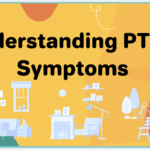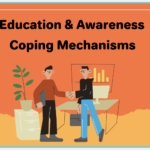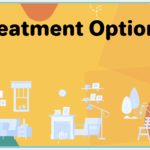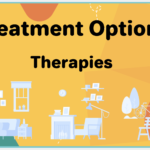Sudden traumatic events, such as serious accidents, can have profound psychological effects, particularly for UK military veterans who may already be vulnerable to post-traumatic stress disorder (PTSD). This article examines how accidents can trigger or exacerbate PTSD in veterans, exploring symptoms, treatments, and coping strategies. For UK military veterans, the transition from active service to civilian life can be challenging, and the occurrence of a serious accident during this period can significantly compound existing mental health vulnerabilities. The combination of prior combat-related trauma and a sudden, life-threatening event can create a perfect storm for the development or worsening of PTSD symptoms. Understanding the unique challenges faced by veterans in these situations is crucial for providing effective support and treatment. This article aims to shed light on the complex interplay between military service, sudden trauma, and PTSD, offering insights for veterans, their families, and healthcare professionals working with this population.
Understanding PTSD in UK Military Veterans
Post-traumatic stress disorder is a mental health condition that can develop after exposure to traumatic events. For UK military veterans, PTSD often stems from combat experiences, but other sudden traumas like serious accidents can also trigger the condition or worsen existing symptoms. The prevalence of PTSD among UK veterans is estimated to be around 6%, which is higher than the general population rate of 4%. This increased vulnerability is attributed to the cumulative effect of multiple traumas experienced during military service, as well as the challenges of transitioning to civilian life. Veterans who have been deployed to conflict zones such as Iraq and Afghanistan show even higher rates of PTSD, with studies indicating a prevalence of 9.4% among this group. The unique nature of military service, which often involves prolonged periods of high stress, exposure to life-threatening situations, and the potential for moral injury, creates a complex backdrop against which additional traumas like accidents can have an outsized impact. Moreover, the military culture, which often emphasizes resilience and stoicism, can make it difficult for veterans to seek help or acknowledge their psychological struggles, potentially exacerbating the effects of PTSD over time.
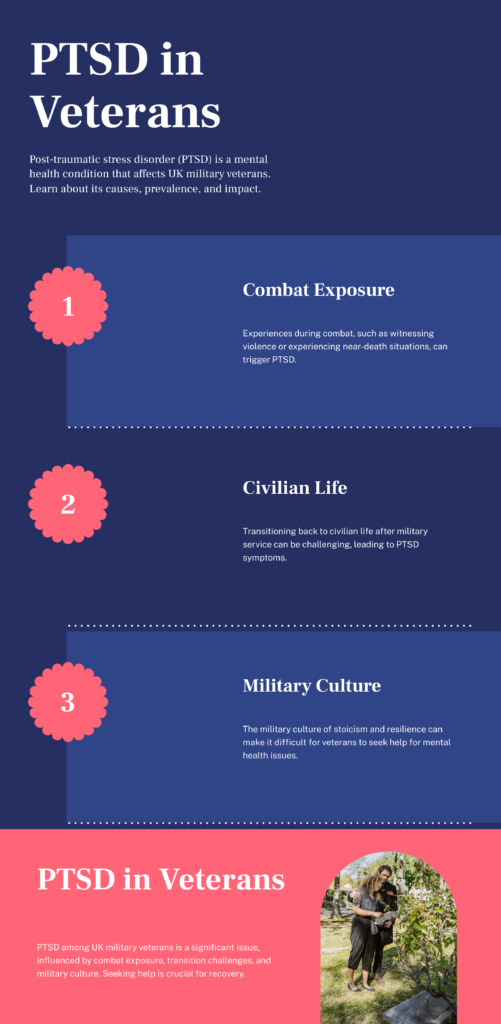
Risk factors that may increase a veteran’s likelihood of developing PTSD after an accident include previous combat exposure, pre-existing mental health conditions, severity of injuries sustained in the accident, lack of social support, and financial stress or job loss resulting from the accident. The interplay of these factors can create a complex web of vulnerabilities that make veterans particularly susceptible to PTSD following sudden traumatic events. For instance, a veteran who has experienced intense combat situations may have developed coping mechanisms that work well in a military context but prove maladaptive in civilian life. When faced with a sudden accident, these individuals may find their ability to process and integrate the new trauma overwhelmed, leading to the development or exacerbation of PTSD symptoms. Additionally, the loss of the structured military environment and the strong sense of camaraderie experienced during service can leave veterans feeling isolated and unsupported when dealing with new traumas in civilian life, further increasing their risk of developing PTSD.
Symptoms of Accident-Related PTSD in Veterans
PTSD symptoms following a serious accident may manifest differently in veterans compared to civilians, often intertwining with existing combat-related trauma responses. Common symptoms include intrusive thoughts and flashbacks, avoidance behaviors, hyperarousal and hypervigilance, and negative changes in mood and cognition. Veterans may experience vivid, intrusive memories or flashbacks of the accident, often triggered by stimuli reminiscent of the event. These can be particularly distressing if they overlap with combat-related memories, creating a layered traumatic experience that can be challenging to process. For example, a veteran who has been in a serious car accident might find that the sound of screeching tires not only triggers memories of the accident but also recalls experiences of incoming artillery fire from their time in combat. This intertwining of traumatic memories can make it difficult for veterans to distinguish between past and present threats, leading to a constant state of heightened alertness and emotional distress.
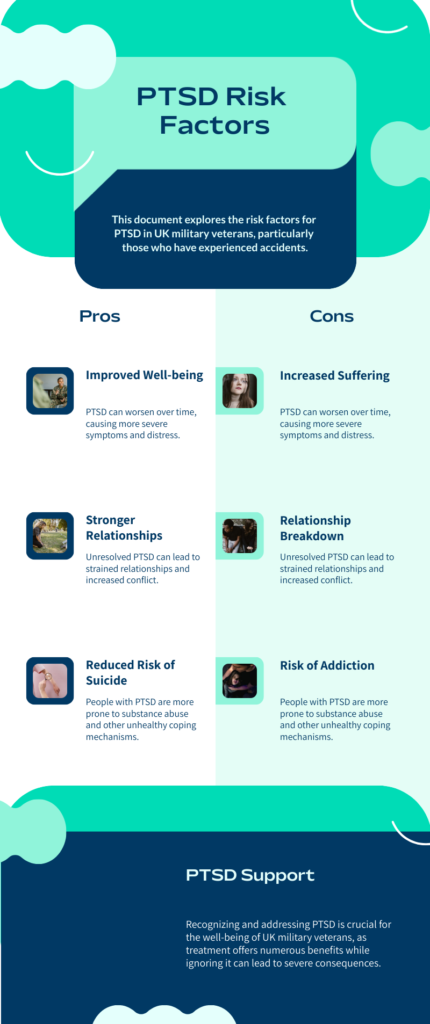
Avoidance behaviors are another hallmark of PTSD in veterans following accidents. This may manifest as refusing to drive or ride in vehicles, withdrawing from social activities, or avoiding situations that feel unsafe. These avoidance strategies, while providing temporary relief, can significantly impact a veteran’s quality of life and ability to function in civilian society. Hyperarousal and hypervigilance are frequently observed, with veterans experiencing heightened states of alertness, difficulty sleeping, and exaggerated startle responses. This constant state of “high alert” can be exhausting and may lead to physical health problems over time. Negative changes in mood and cognition are also common, including depression, anxiety, and feelings of detachment from others. Veterans may struggle with guilt, shame, or a sense of foreshortened future, particularly if the accident has resulted in injuries that affect their ability to work or engage in activities they previously enjoyed. These mood changes can be compounded by the challenges of adapting to civilian life, potentially leading to a sense of loss of identity and purpose.
The Psychological Impact of Sudden Trauma
Sudden traumatic events like accidents can shatter a veteran’s sense of safety and control, particularly if they have previously experienced combat-related trauma. The unpredictable nature of accidents can trigger a range of psychological responses that may be more intense or complex in veterans due to their prior experiences. Heightened anxiety and hypervigilance are common reactions, with veterans becoming excessively worried about potential dangers, leading to constant vigilance and difficulty relaxing. This state of high alert can be exhausting and interfere with daily functioning, making it challenging for veterans to engage in normal activities or maintain employment. The persistent feeling of being unsafe or under threat can also strain relationships, as family members and friends may struggle to understand or cope with the veteran’s heightened state of arousal.
Survivor’s guilt is another significant psychological impact that veterans may experience following an accident, especially if others were injured or killed. This guilt can be particularly intense for veterans who have already grappled with similar feelings related to combat experiences. The sense of responsibility and the “why me?” question can be overwhelming, leading to depression, self-blame, and in severe cases, suicidal ideation. Loss of identity and purpose is also a common psychological consequence, particularly if the accident results in physical injuries or disabilities that force veterans to redefine their sense of self and capabilities. This loss of identity can be especially challenging for those who strongly identified with their military role and may struggle to find a new sense of purpose in civilian life. The combination of physical limitations and psychological distress can create a feedback loop that reinforces feelings of worthlessness and hopelessness.
Perhaps one of the most complex psychological impacts for veterans is the reactivation of combat-related trauma. The sudden, violent nature of accidents can trigger memories and emotions associated with combat experiences, creating a layered traumatic response that can be difficult to untangle. Veterans may find themselves reliving past traumas alongside the recent accident, leading to a compounding of PTSD symptoms and making it challenging to process and integrate the new traumatic experience. This reactivation can also lead to a sense of regression, with veterans feeling as though they’ve lost progress they may have made in dealing with their combat-related PTSD. The intertwining of past and present traumas can create a complex psychological landscape that requires specialized treatment approaches tailored to the unique experiences of military veterans.
Treatment Approaches for Accident-Related PTSD in Veterans
Effective treatments for PTSD in veterans often combine evidence-based therapies with medication and holistic approaches, tailored to address both the recent accident-related trauma and any underlying combat-related PTSD. Cognitive-Behavioral Therapy (CBT) is a cornerstone of PTSD treatment, helping veterans identify and change negative thought patterns related to the accident and past traumas. Techniques like exposure therapy can be particularly effective in reducing avoidance behaviors and decreasing the intensity of traumatic memories. For veterans, CBT may need to be adapted to address the unique aspects of military culture and experience, ensuring that the therapy resonates with their background and values. This might involve incorporating military metaphors or addressing specific concerns related to unit cohesion, mission focus, and the warrior ethos. Additionally, CBT can help veterans develop skills to manage the heightened arousal and hypervigilance that often accompany PTSD, teaching them techniques to regulate their emotions and respond more adaptively to triggers in their environment.
Eye Movement Desensitization and Reprocessing (EMDR) is another evidence-based treatment that has shown particular efficacy for processing traumatic memories. It involves recalling the traumatic event while performing specific eye movements, helping the brain reprocess the memory and reduce its emotional impact. For veterans dealing with accident-related PTSD on top of combat trauma, EMDR can be especially useful in addressing the layered nature of their traumatic experiences. The therapy can help veterans process both recent and past traumas, potentially leading to a reduction in overall PTSD symptoms and improved functioning. However, it’s important to note that EMDR may need to be carefully applied with veterans who have complex trauma histories, as the intensity of the treatment can sometimes lead to temporary increases in distress before improvement is seen.
Medication can play a crucial role in managing PTSD symptoms, particularly when combined with psychotherapy. Selective serotonin reuptake inhibitors (SSRIs) are often prescribed to manage symptoms of depression, anxiety, and sleep disturbances associated with PTSD. For veterans, medication management may require special consideration of potential interactions with other medications they may be taking for physical injuries or other service-related conditions. Additionally, some veterans may be hesitant to take psychiatric medications due to concerns about stigma or potential impact on their ability to work or function. In these cases, education about the benefits and limitations of medication, as well as close monitoring and adjustment of dosages, can be crucial for ensuring adherence and effectiveness.
Group therapy and peer support programs can be particularly beneficial for veterans with PTSD, as they provide a sense of camaraderie and shared experience that many miss after leaving military service. Connecting with other veterans who have experienced similar traumas can provide valuable support and reduce feelings of isolation. Group therapy sessions offer a safe space to share experiences and coping strategies, and can help veterans realize they are not alone in their struggles. For those dealing with accident-related PTSD, mixed groups that include veterans with various trauma backgrounds can provide perspective and help integrate the new traumatic experience into their overall recovery journey. Peer support programs, often led by veterans themselves, can offer practical advice on navigating civilian life while managing PTSD symptoms, providing a bridge between clinical treatment and real-world application of coping skills.
Coping Strategies for Veterans with Accident-Related PTSD
In addition to professional treatment, veterans can employ various coping strategies to manage PTSD symptoms and improve their overall quality of life. Mindfulness and relaxation techniques have shown significant benefits in reducing anxiety and improving emotional regulation. Practices such as mindfulness meditation, deep breathing exercises, and progressive muscle relaxation can help veterans ground themselves in the present moment, reducing the impact of intrusive thoughts and flashbacks. These techniques can be particularly helpful for managing the heightened arousal and hypervigilance that often accompany PTSD. For veterans dealing with accident-related trauma, mindfulness practices can also aid in reconnecting with their bodies and surroundings, which may have been disrupted by the traumatic event. Regular practice of these techniques can lead to improved stress management, better sleep quality, and an overall sense of calm and control.
Physical exercise is another powerful coping strategy that can help alleviate symptoms of depression and anxiety while improving overall physical and mental well-being. For veterans, engaging in regular physical activity can provide a sense of structure and purpose that may have been lost after leaving military service. Activities like running, weightlifting, or team sports can help release endorphins, improve mood, and provide a healthy outlet for pent-up energy or aggression. Additionally, activities like yoga or tai chi can be particularly beneficial for managing stress and improving body awareness, which may have been affected by the traumatic accident. It’s important to note that for veterans with physical injuries from accidents, exercise routines may need to be adapted in consultation with healthcare providers to ensure safety and effectiveness.
Establishing and maintaining daily routines can provide a sense of structure and control, helping to counteract feelings of chaos or unpredictability associated with trauma. For veterans transitioning to civilian life, creating new routines that incorporate self-care, social connections, and meaningful activities can be crucial for recovery. This might include setting regular sleep and wake times, scheduling meals, and allocating time for therapy, exercise, and leisure activities. Having a structured day can help reduce anxiety and provide a sense of accomplishment, even on difficult days. For those dealing with accident-related PTSD, gradually reintroducing activities that may have been avoided due to trauma can be an important part of the recovery process, helping to rebuild confidence and reclaim areas of life that may have been impacted by the accident.
Journaling and creative expression can serve as therapeutic outlets for processing trauma and managing emotions. Writing about experiences and emotions related to both the accident and military service can help veterans externalize their thoughts and gain new perspectives on their experiences. Creative activities like art, music, or photography can provide non-verbal ways to express complex emotions and experiences that may be difficult to put into words. These activities can be particularly beneficial for veterans who struggle with traditional talk therapies or who find it challenging to verbalize their experiences. Engaging in creative pursuits can also help veterans rediscover aspects of themselves that may have been overshadowed by their trauma, fostering a sense of identity beyond their military service and traumatic experiences.
The Road to Recovery: Long-Term Outlook for Veterans
Recovery from accident-related PTSD is possible with proper treatment and support, though the journey may be challenging and non-linear. Many veterans find that their symptoms improve over time, particularly with consistent engagement in therapy and application of coping strategies. Key factors in long-term recovery include ongoing support, addressing co-occurring conditions, developing resilience, and finding ways to reintegrate into civilian life. Maintaining connections with mental health professionals, support groups, and understanding friends and family is crucial for sustained recovery. These support systems can provide encouragement during difficult periods, help veterans stay accountable to their treatment goals, and offer practical assistance in navigating the challenges of civilian life with PTSD.
Addressing co-occurring conditions is essential for comprehensive recovery. Many veterans with PTSD also struggle with depression, anxiety disorders, or substance abuse, which can complicate treatment and recovery. Integrated treatment approaches that address all co-occurring conditions simultaneously tend to be most effective. This might involve coordinated care between mental health professionals, addiction specialists, and medical doctors to ensure all aspects of a veteran’s health are being addressed. For those dealing with physical injuries from accidents in addition to PTSD, a holistic approach that includes physical rehabilitation alongside mental health treatment can be particularly beneficial.
Developing resilience is a crucial aspect of long-term recovery for veterans with PTSD. This involves building psychological strength and flexibility to better manage future stressors and potential traumas. Resilience-building strategies might include cultivating a strong support network, practicing self-care, setting and working towards meaningful goals, and developing a sense of purpose beyond military service. For veterans dealing with accident-related PTSD, building resilience may also involve gradually facing fears associated with the accident, such as returning to driving or visiting locations that trigger memories of the event. As resilience grows, veterans often find they are better equipped to handle setbacks and continue making progress in their recovery.
Finding meaningful ways to reintegrate into civilian life is another important aspect of long-term recovery. This might involve pursuing education, finding employment that aligns with their skills and values, or engaging in volunteer work. Many veterans find that giving back to their communities or helping other veterans provides a sense of purpose and helps them make meaning out of their experiences. Engaging in activities that promote social connection and community involvement can also help combat feelings of isolation that often accompany PTSD. For those whose accidents have resulted in career changes or physical limitations, exploring new interests and adapting previous skills to new contexts can be an important part of rebuilding identity and finding fulfillment in civilian life.
In conclusion, while serious accidents can have profound psychological impacts on UK military veterans, effective treatments and coping strategies are available. By understanding the unique challenges veterans face and providing targeted support, we can help those affected by accident-related PTSD find a path to healing and renewed well-being. Recovery is a journey that requires patience, persistence, and support, but with the right resources and commitment, veterans can overcome the impacts of trauma and build meaningful, satisfying lives beyond their military service and traumatic experiences

